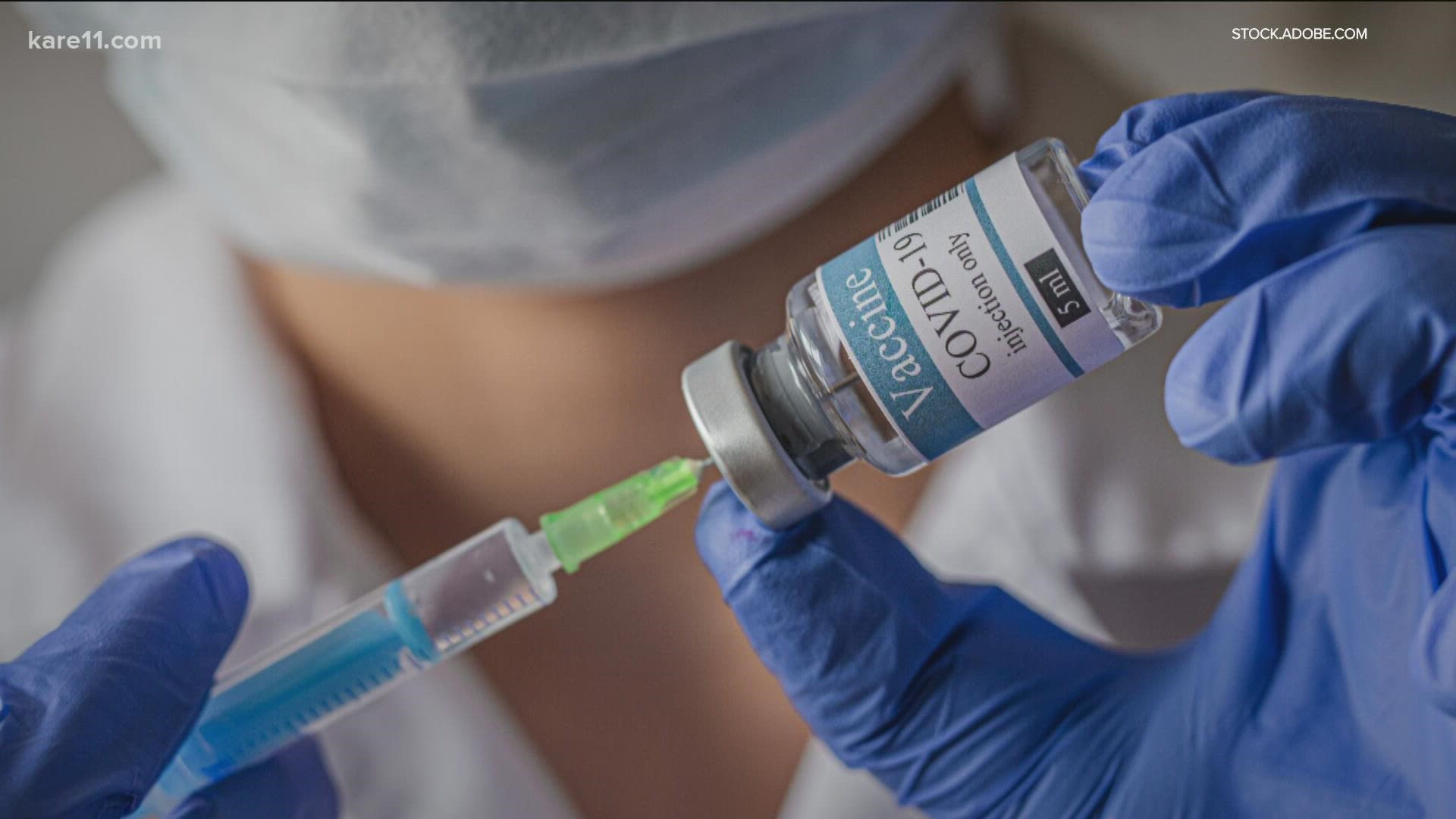GOLDEN VALLEY, Minn. — What gives you better protection, a COVID-19 infection or a COVID-19 vaccine?
It’s a seminal question among so called anti-vaxxers, and one that has scientific merit on both sides.
“I will say straight out, we have bungled this issue as a science community,” said Michael Osterholm, director of the Center for Infectious Disease Research and Policy (CIDRAP) at the University of Minnesota. “We have. These are legitimate points.”
During Osterholm’s most recent podcast, he tried to answer the “natural immunity” vs vaccine-induced immunity question by saying he sees a COVID infection similar to a first dose of a vaccine.
“I think we want to recognize that previous infection does provide some immunity but not overstate the fact that it seems to be the perfect answer, because we have compelling evidence that it’s not. At the same time, for those who say it really only provides little or limited protection, the data doesn’t support that either,” said Osterholm.
Here’s what the best studies show to date.
This study from Israel showed those vaccinated with Pfizer had a 13-fold higher risk of getting the delta variant compared to those unvaccinated with immunity from an infection.
This would suggest natural immunity was more protective.
And there's this Rockefeller University study showing vaccines produce higher quantities of antibodies than natural infection, but they don't last as long.
RELATED: No, the Pfizer COVID-19 vaccine dosage is not the same for kids ages 5 to 11 as it is for adults
This indicates immunity from natural infection is perhaps stronger.
But Friday morning, the CDC put out this new study.
It looked at data from 187 hospitals across nine states showing unvaccinated people who had COVID up to six months earlier were more than five times likelier to get COVID again versus mRNA-vaccinated people who never had COVID.
The study indicates vaccine immunity was far better than natural immunity at preventing a COVID infection, at least in those hospitalized with the disease.
You can see how some struggle to find middle ground with research suggesting different outcomes.
“People that had a natural infection, recovered and have never been vaccinated, have immunity,” said Marc Jenkins, director of Immunology at the University of Minnesota Medical School. “Many probably have a high degree of immunity to a subsequent infection that would likely protect them. We know mRNA vaccines do the same thing.”
While Jenkins affirms you can get immunities in both ways, the old-fashioned way of being infected comes with added risk and variability.
“People who get natural infections get varying degrees of natural infection. Some get a lot more infectious particles than others and therefore some have more immunity than others,” said Jenkins. “Anyone who thinks they are going to go the natural infections route and hope to achieve immunity that way is running a risk of death that is extraordinarily higher than getting the vaccine.”
One thing, however, has been clear through multiple studies in different countries reaching the same conclusion: Getting a vaccine after you've survived COVID gives you the best protection against all known strains of the SARS-CoV-2 virus.

